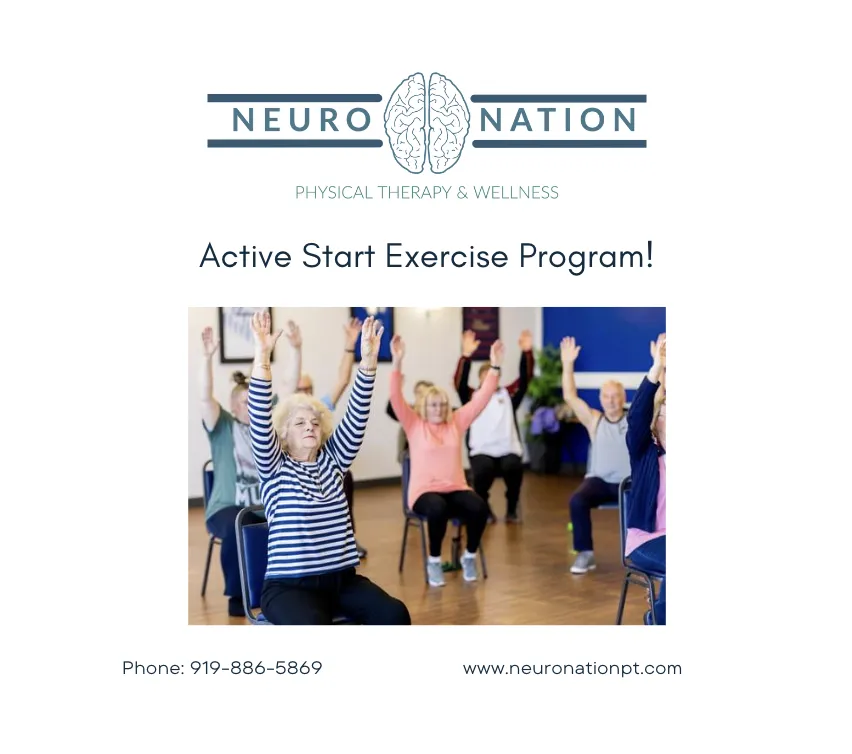Brain Injury
A brain injury occurs when there is damage to the brain due to an external force (Traumatic Brain Injury - TBI) or an internal medical condition (Non-Traumatic Brain Injury - NTBI).
2 Types of Brain Injuries
1) Traumatic Brain Injury (TBI): TBI occurs due to an external force impacting the head. TBIs can range from mild (concussions) to severe, affecting movement, memory, and coordination. Commonly from: Falls, car accidents, sports injuries, or assaults
2) Non-Traumatic Brain Injury (NTBI): NTBI occurs due to medical conditions rather than external trauma. Examples: Lack of oxygen to the brain (Anoxia / Hypoxia, brain tumors, infections (Encephalitis, Meningitis), or toxic exposure (drug overdose, carbon monoxide poisoning)
Choose Your Plan
Online Exercise Program
$49.99/month
7 DAY FREE TRIAL!
Personalized Schedule: Follow along on our app with a structured schedule and clear instructions.
Video Exercise Classes: Have the option to pick from pre-recorded exercise classes at various levels
Focused Exercises: Improve walking, cognition, strength, and balance.
Access to Experienced Instructors: Ask questions to a physical therapist with expertise in brain injury care.
*Recommended for individuals with the ability to stand

No contracts - cancel anytime
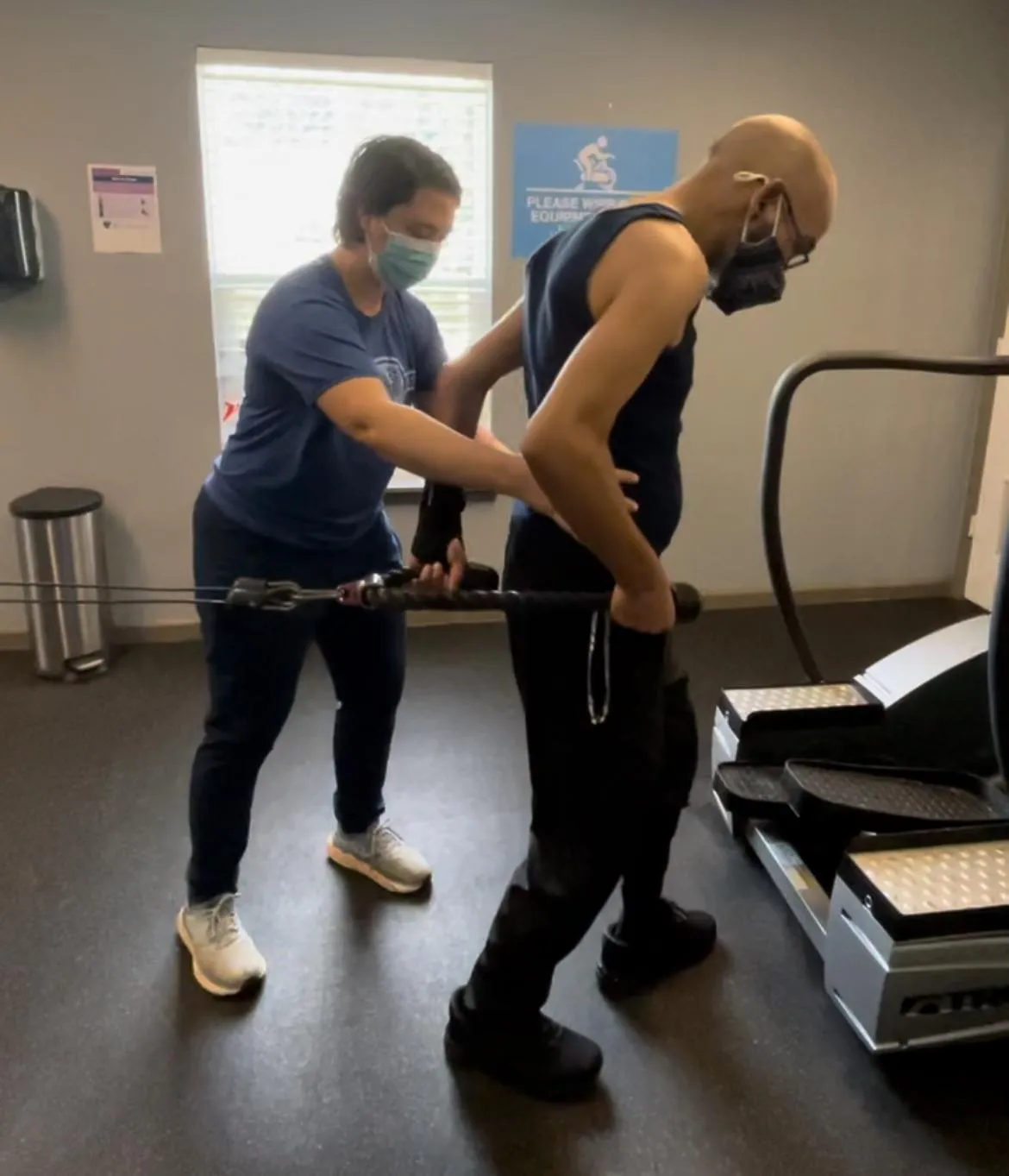
Brain INjury Program (1-on-1)
Each Session 60 minutes
$200= 1 session
$700/month= 4 sessions per month
$1,300/month= 8 sessions per month
What It Is: Personalized in-home physical therapy sessions focused on improving walking, balance, mobility, strength, and functional independence.
Who It’s For: Individuals at any stage of their journey, from newly diagnosed to many years out.
What’s Included: Personalized program that can include: gait retraining, balance recovery, mobility, coordination, or vestibular therapy.
No contracts - cancel anytime
*May be covered under insurance
Types of TBI
Mild Concussion
Known as a mild traumatic brain injury (mTBI), is the most common type of brain injury. It typically occurs due to a sudden blow or jolt to the head or body, causing the brain to move rapidly within the skull.
Symptoms: May include headache, dizziness, confusion, temporary loss of consciousness, nausea or vomiting, blurred vision, sensitivity to light or noise, fatigue, and difficulty concentrating or remembering.
Functional Impairments: Symptoms of a mild concussion are usually temporary and resolve within days to weeks, but individuals may experience difficulty with balance, coordination, attention, memory, and cognitive processing speed.
Moderate Traumatic Brain Injury (TBI)
More significant injury to the brain, typically resulting from a more forceful impact or trauma to the head. It may involve bruising, bleeding, or swelling of the brain tissue.
Symptoms: May include loss of consciousness lasting from a few minutes to several hours, persistent headache, repeated vomiting or nausea, seizures, dilation of pupils, slurred speech, weakness or numbness in extremities, and profound confusion or agitation.
Functional Impairments: May experience more pronounced functional impairments, including difficulties with mobility, speech and language, sensory perception, executive function (such as decision-making and problem-solving), and emotional regulation.
Severe Traumatic Brain Injury (TBI)
Extensive damage to the brain tissue and often results from a significant impact, such as a high-speed motor vehicle accident, fall from a height, or penetrating head injury.
Symptoms: May include prolonged loss of consciousness (coma), profound cognitive deficits, persistent vomiting, clear fluids draining from the nose or ears (indicating a skull fracture), weakness or paralysis on one side of the body, and changes in pupil size or reactivity.
Functional Impairments: Severe functional impairments, including profound physical disability, cognitive deficits (such as severe memory loss or inability to communicate), sensory deficits (such as loss of vision or hearing), and alterations in consciousness (such as coma or vegetative state).
Diffuse Axonal Injury (DAI)
Widespread damage to the brain's white matter fibers, often resulting from rapid acceleration-deceleration forces, such as those seen in high-speed motor vehicle accidents or shaken baby syndrome.
Symptoms: May vary depending on the extent and location of the damage but can include unconsciousness, coma, persistent vegetative state, cognitive impairments, motor deficits, and alterations in consciousness.
Functional Impairments: May experience a range of functional impairments, including difficulties with cognition, motor function, sensory processing, and consciousness, which can vary in severity depending on the extent of the injury
How Exercise & Therapy Can Help
Physical therapy is essential for regaining mobility, rebuilding strength, and improving independence after a brain injury.
Balance & Fall Prevention – Training to improve stability and prevent injuries.
Gait & Walking Rehabilitation – Retraining movement patterns for better mobility.
Neuromuscular Re-Education – Helping the brain and body reconnect for smoother movement.
Vestibular Therapy for Dizziness & Vertigo – Improving balance and spatial awareness.
Strength & Endurance Training – Restoring muscle function and energy levels.
Coordination & Fine Motor Skill Exercises – Enhancing hand control and precision.
Adaptive Training for Daily Activities – Learning new ways to perform tasks safely.
Choose Your Plan
Online Exercise Program
$49.99/month
7 DAY FREE TRIAL!
Personalized Schedule: Follow along on our app with a structured schedule and clear instructions.
Video Exercise Classes: Have the option to pick from pre-recorded exercise classes at various levels
Focused Exercises: Improve walking, cognition, strength, and balance.
Access to Experienced Instructors: Ask questions to a physical therapist with expertise in brain injury care.
*Recommended for individuals with the ability to stand

No contracts - cancel anytime

Brain INjury Program (1-on-1)
Each Session 60 minutes
$200= 1 session
$700/month= 4 sessions per month
$1,300/month= 8 sessions per month
What It Is: Personalized in-home physical therapy sessions focused on improving walking, balance, mobility, strength, and functional independence.
Who It’s For: Individuals at any stage of their journey, from newly diagnosed to many years out.
What’s Included: Personalized program that can include: gait retraining, balance recovery, mobility, coordination, or vestibular therapy.
No contracts - cancel anytime
*May be covered under insurance
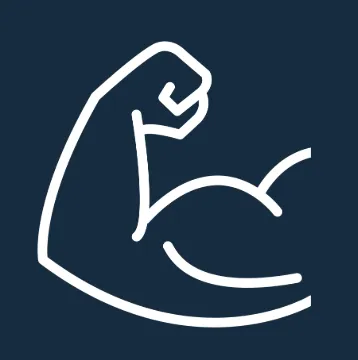
Empowerment
Regain independence.
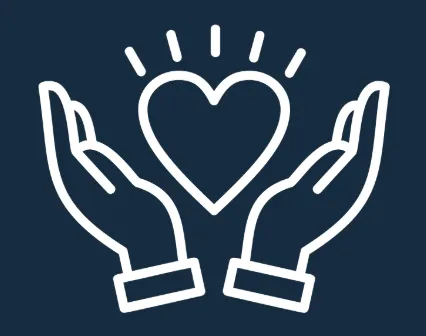
Compassion
Care with empathy.

Commitment
Dedicated to improving lives.
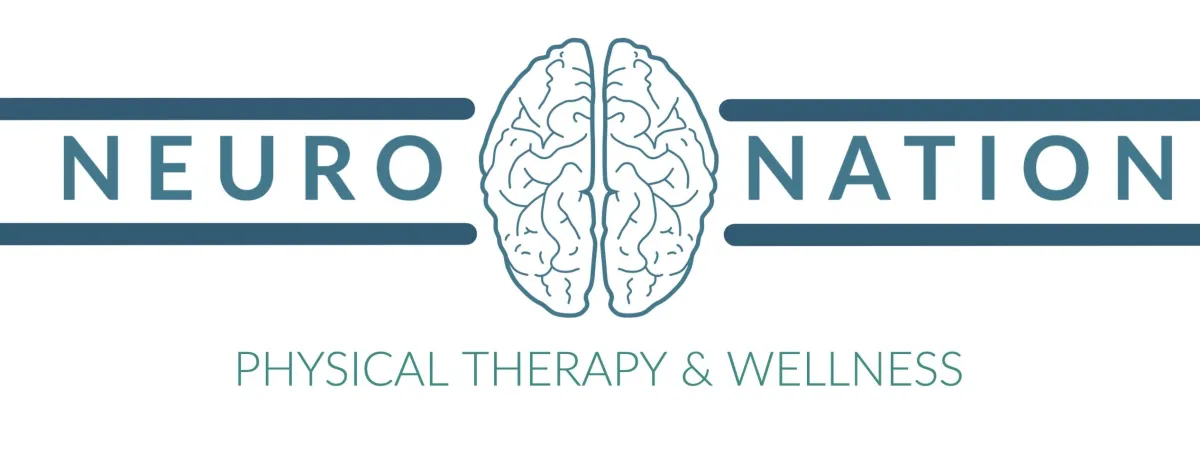
FOLLOW US
COMPANY
CUSTOMER CARE
LEGAL
Copyright 2026. In and around Triangle, NC . All Rights Reserved.
